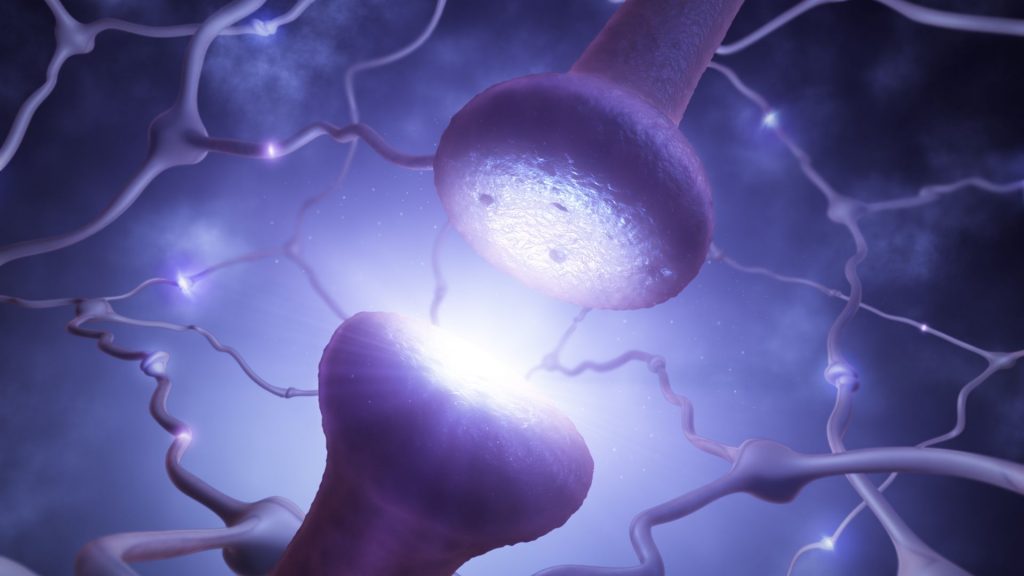Due to the alleged cognitive effects of Celastrus paniculatus, sometimes people call it the “elixir of intelligence” or the “elixir of life” in traditional Ayurvedic medicine. Evidence suggests that this plant, especially its oil, improves mental performance and memory, affects neurotransmitters, and helps with pain and inflammation.
Disclaimer: Most Celastrus studies so far are animal studies. However, we’ve found it an effective nootropic herb, especially with our proprietary extraction technologies.
What Is Celastrus Paniculatus?
Celastrus paniculatus is a tall, woody climber (sometimes known as a climbing shrub) of the Celastraceae family with yellow, corky bark . It grows throughout India and may reach heights of about 2000 meters. The plants have a variety of medicinal properties, including usage for:
- Cognitive impairment
- Sleep
- Joint discomfort
- And post-meal stomach discomfort
The most often utilized plant portion is oil from the seeds (known as Jyothismati oil, JO), which contains different levels of the alkaloids celastrine and paniculatin. Jyothismati has a bitter flavor and a scorching potency. However, the seeds and seed oil are highly therapeutic. The seed oil is beneficial for massage, particularly in vata disorders such as back discomfort, facial muscle weakness, and joint issues .
Note: We’re sharing this list of conditions based on Ayurvedic literature for educational purposes only. Our products contain specific extracts of Celastrus that are not intended to treat any diseases.
What Is SuperCelastrusTM?
SuperCelastrusTM are our set of proprietary extracts of Celastrus paniculatus, using a combination of:
- Sonic and ultrasonic extraction
- Lipid suspension and micronization technologies
- Combining various parts of the seed and the plant at various stages of processing
Our extraction technologies allow us to create SuperCelastrus blends that target dopamine, acetylcholine, serotonin, and GABA.
Health And Brain Benefits Of Celastrus Paniculatus

Celastrus’ Effects on Neurotransmitters
Clinical studies indicate that Celastrus paniculatus has two main effects on neurotransmitters:
- Balancing their levels
- Antioxidant and neuroprotective effect
Celastrus paniculatus increases cognitive performance by acting on the acetylcholine level in the brain. It primarily balances neurotransmitters such as serotonin, epinephrine, and dopamine to optimize memory and learning in the brain.
Celastrus paniculatus also enhances mental wellbeing and promotes a healthy stress response due to its interaction with dopamine, serotonin and GABA receptors. It increases the levels of serotonin, dopamine and noradrenaline by blocking the activity of MAO-A. MAO-A is the enzyme that breaks these neurotransmitters down.
In rats, Celastrus may lower both levels and turnover of noradrenaline, dopamine, and serotonin levels in the brain. According to the researchers, these effects may aid learning and memory enhancement .
Increases Acetylcholine Levels
C. paniculatus seed extract inhibits acetylcholinesterase, the enzyme that breaks down acetylcholine. Blocking this enzyme boosts acetylcholine levels in the brain, improving many aspects of cognitive function .
Taking Celastrus oil for prolonged periods of time can lead to increased cognitive performance and improvements in memory retention. This is due to the fact that Celastrus paniculatus increases levels of acetylcholine in the brain.
Improves Mental Performance And Memory During Stressful Situations
Chronic stress can accelerate aging and neurodegeneration . Stress can also impair some aspects of brain function .
Long-term stress can interfere with working memory, learning, and relaxation responses. According to some experts, Celastrus may help protect the brain from the detrimental effects of stress. Stressed rats that were administered Celastrus oil performed better on learning and memory tests . Another rat study discovered that Celastrus seed oil might boost mental function and memory .
Improves Myelination
Celastrus paniculatus oil increases the concentration of proteins and phospholipids in the brain leading to the belief that it possibly increases myelination around neurons.
Protects Neurons From Glutamate Toxicity
Glutamate is a chemical that can cause neuronal cell death, Celastrus paniculatus protects the brain from glutamate induced toxicity by blocking NMDA receptors.
Counteracts And Protects Neurons From Oxidative Stress
Furthermore, the antioxidants in Celastrus paniculatus reduce brain levels of the oxidative stress marker malondialdehyde. Some of its components scavenge hydrogen peroxide and superoxides inside the cells. Aside from counteracting the harmful effects of oxidative stress, it also simultaneously increases glutathione and catalase levels significantly .
Inflammation-Balancing
Studies on Celastrus paniculatus indicate possible anti-inflammatory effects. In addition, there is some indication that Celastrus extract components (sesquiterpene esters) may inhibit inflammatory chemicals such as NF-kB, nitric oxide, IL-6, and TNF-a .
In mice, Celastrus extract had inflammation-balancing effects. In addition, Celastrus seed extract may also ease swelling and discomfort in animal studies .
We need additional clinical studies to confirm this benefit of Celastrus.
Dosage
Traditional doses of Celastrus paniculatus begin with 10 seeds consumed all at once. If no adverse effects occur, raise the amount to 15, then 20, and eventually 30 seeds.
Due to a lack of clinical study, a safe and effective dosage of Celastrus is unknown. However, Celastrus supplements may contain 400-500 mg of Celastrus paniculatus powder with standard doses of 1 to 2 capsules per day.
Much more study is required to find the best dosage of Celastrus paniculatus.
Side Effects
Due to a lack of clinical studies, no side effects have been determined for the usage of Celastrus paniculatus.
Celastrus has non-existent toxicity in our lab, as we’ve found its LD-50 to be very high. It also doesn’t cause tolerance over time, so chronic use wouldn’t be a concern.

Celastrus paniculatus FAQ
Is Celastrus Toxic?
There is a lack of clinical studies investigating the health effects and safety of Celastrus paniculatus. However, animal studies have touched upon this topic.
- Sperm cell depletion and arrest of spermatogenesis was seen when rats received 0.2 ml of the extract in 0.2 ml of peanut oil every 48 hours for 30 days. Furthermore, liver lesions and focal necrosis occurred during the treatment but healed when celastrus supplementation was discontinued.
- Female albino mice received 300, 2000, or 5000 mg/kg of celastrus seed oil for 42 days. There were no signs of side effects (diarrhea, skin changes, tremors, coma, etc.), toxicity, or lethality caused by the mentioned doses.
- In our lab, SuperCelastrus, our proprietary extract of celastrus, has shown no toxicity due to very high LD-50.
Thus, Celastrus paniculatus seems safe to use. However, dosages in animal studies tend to be very high compared to doses humans take, and some health effects don’t carry over. Therefore, clinical evidence in humans is necessary.
What Are the Effects of Celastrus paniculatus Seed Oil?
Celastrus seed oil shows various nootropic activities in mice and rats.
- It inhibits acetylcholinesterase to increase acetylcholine and increase acetylcholine between neurons, thereby boosting memory performance.
- Celastrus compounds associate with central muscarinic receptors to enhance spatial memory in rats.
- The seed oil also interacts with monoamine oxidase A to decrease its activity in mice, and induce mood-boosting effects.
- The seed oil supports healthy stress response in mobility-restricted rats.
- While the chloroform extract showed strong antioxidant properties, the aqueous extract had highest inflammation-balancing activity.
- The seed oil supports gastrointestinal health and protects the stomach lining in rats.
- Methanolic seed extract also supports healthy cholesterol levels.
Keep in mind that while rodent studies led to many scientific discoveries, you are not a rodent. So, we need more clinical studies to confirm these benefits in humans.
What Is the Common Name for Celastrus paniculatus?
Here are some of the common names for Celastrus paniculatus:
- “Black oil plant” because the seed oil is a very dark color
- “Intellect tree”
- “Climbing staff plant” due to its climbing abilities which result in the plant reaching up to 10-18 m (32-59 feet) tall and having 25 cm (9.8 inches) wide stems
- “The tree of life” in Indian culture, where it’s called “malkankani”.
- “Jyotishmati” is another name for celastrus in the Sanskrit language (coming from intellect – medha, and memory – smruti), which is often used to refer to the Celastrus paniculatus seed oil.
What’s in the Celastrus paniculatus Leaves?
Celastrus leaves are alternate, broad, and oval/elliptical, and have dentate margins. Compounds found in the leaf extract include steroids, terpenoids, alkaloids, saponins, carbohydrates, and phenolic compounds. Celastrus paniculatus leaves obtained from the forest areas of India also contain fixed oils (in all extract types), flavonoids (in the water extract), and triterpenoids (in water and ethanolic extract). An in vitro study of leaf ethanolic extract reported a total phenolic content of 125.6 mg/gm equivalent to gallic acid in 1 mg/ml of the leaf extract.
Furthermore, the methanolic extract of celastrus leaves inhibited the growth of Phytophthora capsici fungi, with inhibition being 100%. Celapanin, a sesquiterpene isolated from the ethanolic extract of celastrus, significantly inhibited the growth of S. aureus, and moderately of K. pneumoniae and P. aeruginosa.
Why Is Celastrus paniculatus Called the Intellect Plant?
You might wonder how celastrus got one of its common names – “the intellect plant”. “Jyotishmati” is another name for celastrus in the Sanskrit language. It comes from the words medha, which means intellect, and smruti, which means memory. This is because Celastrus paniculatus was used to improve intellect in traditional Ayurveda medicine. This plant was mentioned in the writings of Charaka, Vagbhata, and Sushruta as a mental health and intellect-boosting agent, with a special focus on the celastrus oil. The ancient prescriptions included celastrus oil mixed with cow’s ghee. It is because of the ancient Indian use of this plant that it became known as “the intellect plant’’.
Bottom Line
Celastrus paniculatus has various medical and therapeutic benefits, such as improving mental performance and memory, exerting certain effects on neurotransmitters, and potentially inflammation-balancing. Although most of these findings come from animal studies, Celastrus is a very popular herb in Ayurvedic medicine with a long history of safe use.
References
- Lekha G, Mohan K, Samy IA. Effect of Celastrus paniculatus seed oil (Jyothismati oil) on acute and chronic immobilization stress induced in swiss albino mice. Pharmacognosy Res. 2010;2(3):169-174. doi:10.4103/0974-8490.65512
- Godkar PB, Gordon RK, Ravindran A, Doctor BP. Celastrus paniculatus seed water soluble extracts protect against glutamate toxicity in neuronal cultures from rat forebrain. J Ethnopharmacol. 2004;93(2-3):213-219. doi:10.1016/j.jep.2004.03.051
- Valecha R, Dhingra D. Behavioral and Biochemical Evidences for Antidepressant-Like Activity of Celastrus Paniculatus Seed Oil in Mice. Basic and clinical neuroscience. 2016;7(1):49-56.
- Nalini K, Karanth KS, Rao A, Aroor AR. Effects of Celastrus paniculatus on passive avoidance performance and biogenic amine turnover in albino rats. J Ethnopharmacol. 1995;47(2):101-108. doi:10.1016/0378-8741(95)01264-e
- Bhanumathy M, Harish MS, Shivaprasad HN, Sushma G. Nootropic activity of Celastrus paniculatus seed. Pharm Biol. 2010;48(3):324-327. doi:10.3109/13880200903127391
- Olivier B, Zethof T, Pattij T, et al. Stress-induced hyperthermia and anxiety: pharmacological validation. Eur J Pharmacol. 2003;463(1-3):117-132. doi:10.1016/s0014-2999(03)01326-8
- Ramkumar K, Srikumar BN, Shankaranarayana Rao BS, Raju TR. Self-stimulation rewarding experience restores stress-induced CA3 dendritic atrophy, spatial memory deficits and alterations in the levels of neurotransmitters in the hippocampus. Neurochem Res. 2008;33(9):1651-1662. doi:10.1007/s11064-007-9511-x
- Kleen JK, Sitomer MT, Killeen PR, Conrad CD. Chronic stress impairs spatial memory and motivation for reward without disrupting motor ability and motivation to explore. Behav Neurosci. 2006;120(4):842-851. doi:10.1037/0735-7044.120.4.842
- Bhagya V, Christofer T, Shankaranarayana Rao BS. Neuroprotective effect of Celastrus paniculatus on chronic stress-induced cognitive impairment. Indian J Pharmacol. 2016;48(6):687-693. doi:10.4103/0253-7613.194853
- Gattu M, Boss KL, Terry AV Jr, Buccafusco JJ. Reversal of scopolamine-induced deficits in navigational memory performance by the seed oil of Celastrus paniculatus. Pharmacol Biochem Behav. 1997;57(4):793-799. doi:10.1016/s0091-3057(96)00391-7
- Jin HZ, Hwang BY, Kim HS, Lee JH, Kim YH, Lee JJ. Antiinflammatory constituents of Celastrus orbiculatus inhibit the NF-kappaB activation and NO production. J Nat Prod. 2002;65(1):89-91. doi:10.1021/np010428r
- Kothavade P, Bulani V, Nagmoti D, Juvekar A. 100. Cytokine. 2014;70(1):51-52. doi:10.1016/j.cyto.2014.07.107
- Ahmad F, Khan RA, Rasheed S. Preliminary screening of methanolic extracts of Celastrus paniculatus and Tecomella undulata for analgesic and anti-inflammatory activities. J Ethnopharmacol. 1994;42(3):193-198. doi:10.1016/0378-8741(94)90085-x
- Rajkumar R, Kumar EP, Sudha S, Suresh B. Evaluation of anxiolytic potential of Celastrus oil in rat models of behaviour. Fitoterapia. 2007;78(2):120-124. doi:10.1016/j.fitote.2006.09.028
- Kothavade PS, Bulani VD, Deshpande PS, Chowdhury AS, Juvekar AR. The petroleum ether fraction of Celastrus paniculatus Willd. seeds demonstrates anti-arthritic effect in adjuvant-induced arthritis in rats. J Tradit Chin Med Sci. 2015;2(3):183-193. doi:10.1016/j.jtcms.2016.02.004
- Bidwai PP, Wangoo D, Bhullar N. Antispermatogenic action of Celastrus paniculatus seed extract in the rat with reversible changes in the liver. J Ethnopharmacol. 1990;28(3):293-303. doi:10.1016/0378-8741(90)90080-d
- Mishra B, John E, Joy K, Badmanaban, Aleesha. TOXICITY PROFILE OF CELASTRUS PANICULATUS SEEDS: A PRECLINICAL STUDY. Asian J Pharm Clin Res. Published online 2020:115-118. doi:10.22159/ajpcr.2020.v13i7.37803
- Bhanumathy M, Harish MS, Shivaprasad HN, Sushma G. Nootropic activity ofCelastrus paniculatusseed. Pharm Biol. 2010;48(3):324-327. doi:10.3109/13880200903127391
- Gattu M, Boss KL, Terry AV Jr, Buccafusco JJ. Reversal of scopolamine-induced deficits in navigational memory performance by the seed oil of Celastrus paniculatus. Pharmacol Biochem Behav. 1997;57(4):793-799. doi:10.1016/s0091-3057(96)00391-7
- Valecha R, Dhingra D. Behavioral and biochemical evidences for antidepressant-like activity of Celastrus paniculatus seed oil in mice. Basic Clin Neurosci. 2016;7(1):49-56.
- Lekha G, Mohan K, Samy IA. Effect of Celastrus paniculatus seed oil (Jyothismati oil) on acute and chronic immobilization stress induced in swiss albino mice. Pharmacognosy Res. 2010;2(3):169-174. doi:10.4103/0974-8490.65512
- Arora N, Pandey-Rai S. GC–MS analysis of the essential oil of Celastrus paniculatus Willd. seeds and antioxidant, anti-inflammatory study of its various solvent extracts. Ind Crops Prod. 2014;61:345-351. doi:10.1016/j.indcrop.2014.07.025
- Palle S, Kanakalatha A, Kavitha CN. Gastroprotective and antiulcer effects ofCelastrus paniculatusseed oil against several gastric ulcer models in rats. J Diet Suppl. 2018;15(4):373-385. doi:10.1080/19390211.2017.1349231
- Patil RH, Prakash K, Maheshwari VL. Hypolipidemic effect of Celastrus paniculatus in experimentally induced hypercholesterolemic wistar rats. Indian J Clin Biochem. 2010;25(4):405-410. doi:10.1007/s12291-010-0050-x
- Deodhar, K.A. and Shinde, N.W. Celastrus paniculatus: Traditional uses and Ethnobotanical study. Published online 2015. Accessed August 1, 2023. https://www.researchgate.net/publication/281626232_Celastrus_paniculatus_Traditional_uses_and_Ethnobotanical_study
- Debnath M, Biswas M, Shukla VJ, Nishteswar K. Phytochemical and analytical evaluation of Jyotishmati (Celastrus paniculatus Willd.) leaf extracts. Ayu. 2014;35(1):54-57. doi:10.4103/0974-8520.141929
- Avinash, D. K. , and Waman, S. N. Phytochemical Constituents of Leaves of Celastrus Paniculatus Wild: Endangered Medicinal Plant. International Journal of Pharmacognosy and Phytochemical Research. 2014;6(4):792-794.
- Sharma GN, Kaur H, Shrivastava B, Arora SC. A review from historical to current-Celastrus paniculatus. Int J Pharm Pharm Sci. Published online 2020:15-20. doi:10.22159/ijpps.2020v12i8.38470
- Harish BG, Krishna V, Sharath R, et al. Antibacterial Activity of Celapanin, a Sesquiterpene Isolated from the Leaves of Celastrus paniculatus Willd. Globalsciencebooks.info. Accessed August 1, 2023.
- Saini K, Chaudhary A, Sharma RK. Effect of Celastrus paniculatus on trace elements of cerebellum in ageing albino rats. Ann Neurosci. 2012;19(1):21-24. doi:10.5214/ans.0972.7531.180405
